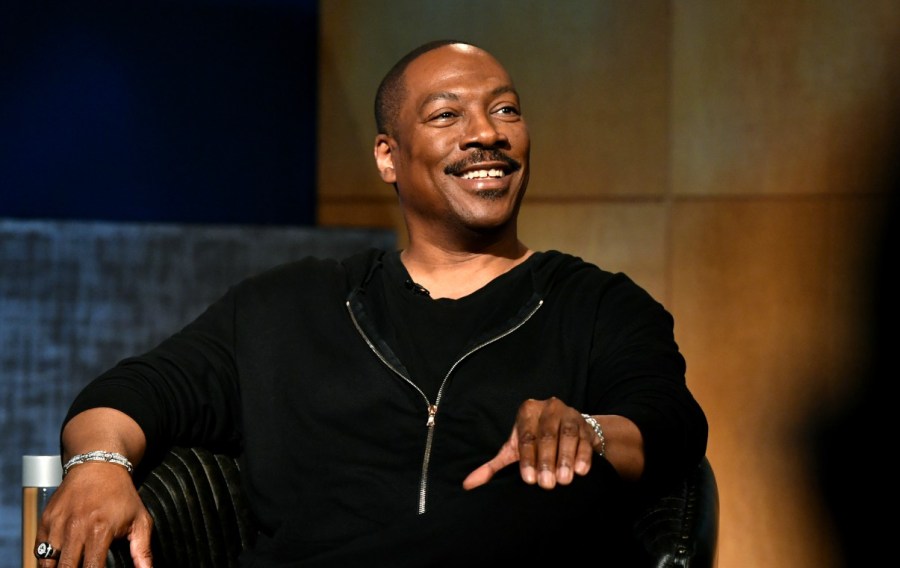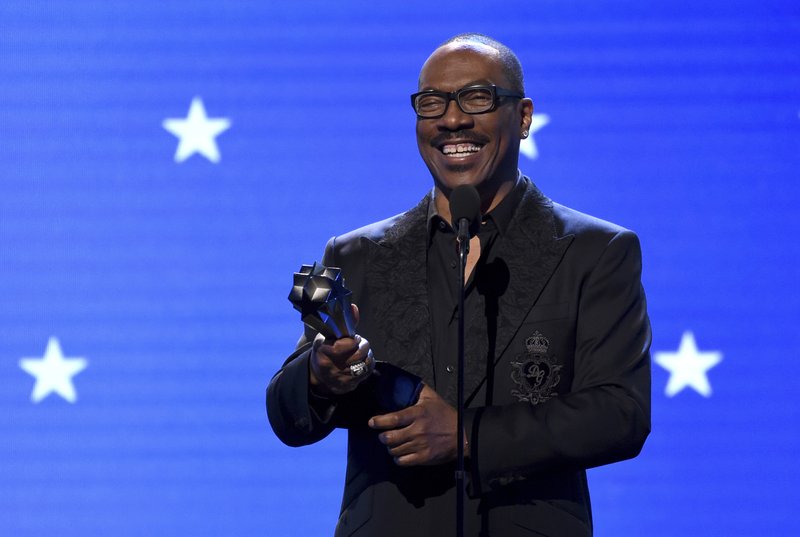Eddie Murphy documentary, ‘Laugh ‘Til It Hurts’ gives a spotty look at the career of the legendary comic
Review: "Eddie Murphy: Laugh 'Til It Hurts" chronicles the life and career of the legendary comedian and actor.
The 1980s was the decade of the megastar. As the dawn of the TV media evolved tremendously, people like Michael Jackson, Prince, Madonna, and Bruce Springsteen dominated the “Me Decade.” The same thing happened in the realm of comedy for Eddie Murphy.
No comic possessed the fame, talent, or charm that Murphy displayed during his ascent in the 1980s. Whether through his films, his stint on “Saturday Night Live (SNL),” or on stage performing stand-up, Murphy reached legendary status before his 40th birthday.
His life and career are chronicled in the documentary, “Eddie Murphy: Laugh ‘Til It Hurts,” currently streaming on theGrio. Chiefly told through archival footage and old interviews with Murphy, as well as journalists and experts, the film touches on his personal life and the ebbs and flows of his film success.

While Murphy’s life and success offer no shortage of compelling stories to unveil, “Laugh ‘Til It Hurts” suffers from omitting portions of Murphy’s life that are crucial to his overall story.
The film does give insight into how Murphy developed his comedic timing and knack for impressions. It explains how he and his older brother, the late comedian-writer Charlie Murphy, had to stay in foster care for a year while their mother, Lillian Murphy, battled an illness. It was at the foster home where Murphy found refuge in TV. “I Love Lucy” and “Looney Tunes” were his favorites, and he soon began imitating the characters.
We see how much show business and comedy became sacred to Murphy, learning that he started skipping class to perform stand-up from age 15 to his high school graduation. He honed his craft in the nightclubs and bars of Long Island and Queens before getting a dream break, getting cast on “SNL” in 1980.

Top 10 Eddie Murphy impressions
The movie spends much time on his “SNL” tenure, showing his prodigious talent in sketches where he would imitate Gumby, Cosby, and James Brown and create memorable new characters like Mr. Robinson. A lot of attention is also made to his concurrent transition into film acting, starring in “48 Hours” and “Trading Places” while still on “SNL.”
While we see Murphy’s exit from “SNL” and his rise as a movie star with films like “Beverly Hills Cop,” “The Golden Child,” and “Coming To America,” the documentary makes nearly no mention of Murphy’s stand-up career. His groundbreaking stand-up concerts, 1983’s “Delirious” and 1987’s “Raw,” are not mentioned, leaving a considerable hole in Murphy’s story that goes unexplained and unexamined.
In addition, in the years between “Coming to America (1988)” and “The Nutty Professor (1996),” the film speeds through Murphy’s career, and movies mentioned that eight-year period as a slump (with merely a passing mention of “Beverly Hills Cop III). Murphy’s dives into music are not brought up either, despite Murphy himself talking about it in an archival interview seen in the film. These omissions severely rob the viewer of seeing the whole arc of Murphy’s evolution as an artist.

Furthermore, an infamous incident in 1997 where police caught Murphy with a transgender prostitute in his car is spoken about with more attention than warranted. (Murphy said he was being a “good Samaritan” by giving the prostitute a ride home, and no actions were taken by the police.) The focus on the incident seems disproportionate, especially when considering the other trials and triumphs of Murphy’s life and career that aren’t concentrated on in any significant way in the documentary. Although it did set up another Murphy comeback in the form of his time during family-oriented films like “Mulan,” “Dr. Dolittle,” “Daddy Day Care,” and the “Shrek” franchise, more time could have been spent elsewhere.
A saving grace of the documentary is the archival interview footage of Murphy during his “SNL” era. He speaks candidly about his childhood, the lack of support from his family and school teachers, and how he used comedy to mask his insecurities.
Unfortunately, the few subject matter experts in the film, like entertainment reporter Ashley Pearson, elaborated on Murphy’s feelings and mindset significantly. Overall, “Eddie Murphy: Laugh ‘Til It Hurts” presents some enlightening insight into Murphy, but only from a young age. Rather than providing answers, it ends with viewers having more questions about the superstar comedian.

Matthew Allen is an entertainment writer of music and culture for theGrio. He is an award-winning music journalist, TV producer and director based in Brooklyn, NY. He’s interviewed the likes of Quincy Jones, Jill Scott, Smokey Robinson and more for publications such as Ebony, Jet, The Root, Village Voice, Wax Poetics, Revive Music, Okayplayer, and Soulhead. His video work can be seen on PBS/All Arts, Brooklyn Free Speech TV and BRIC TV.
TheGrio is FREE on your TV via Apple TV, Amazon Fire, Roku and Android TV. Also, please download theGrio mobile apps today!
